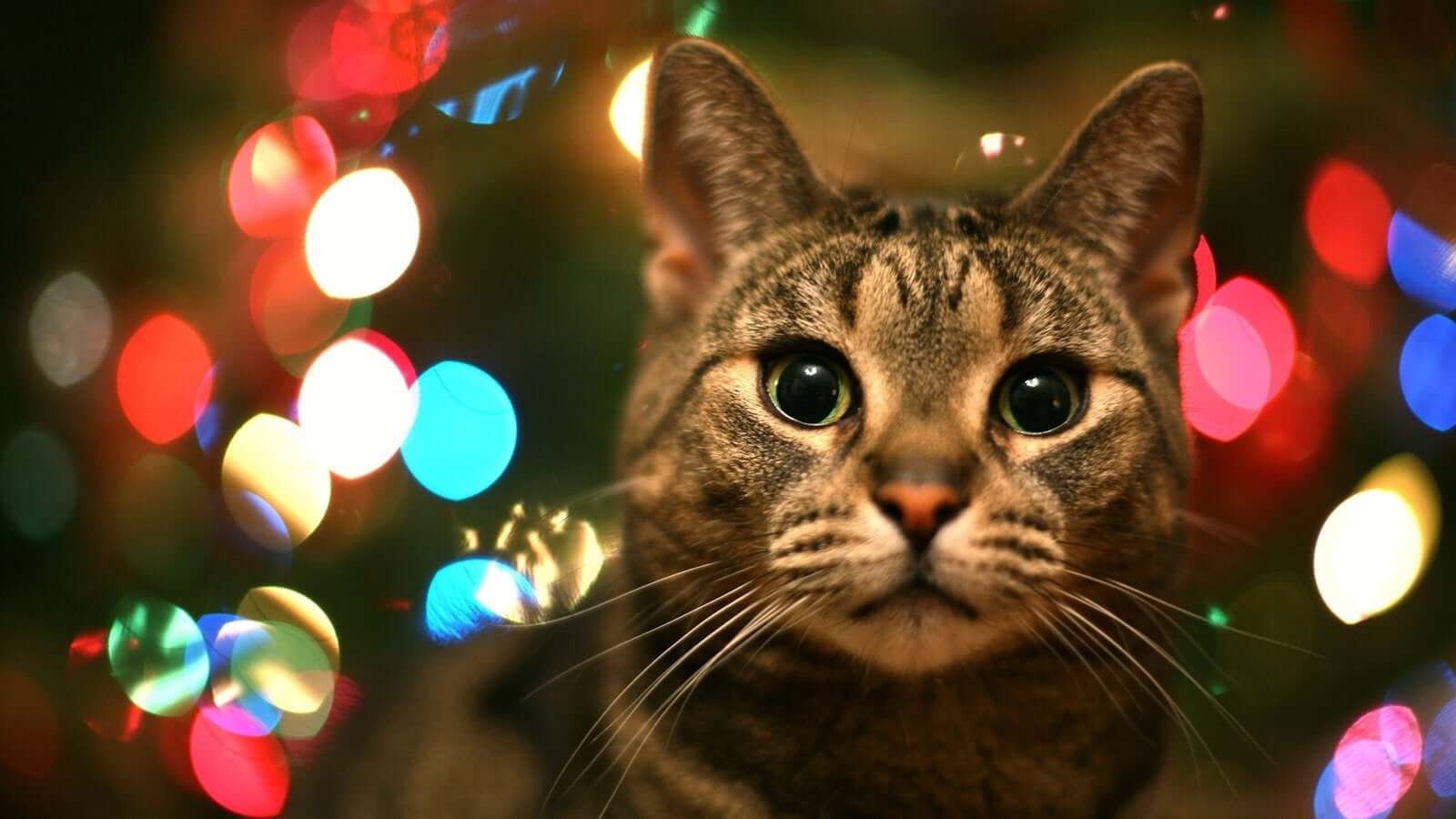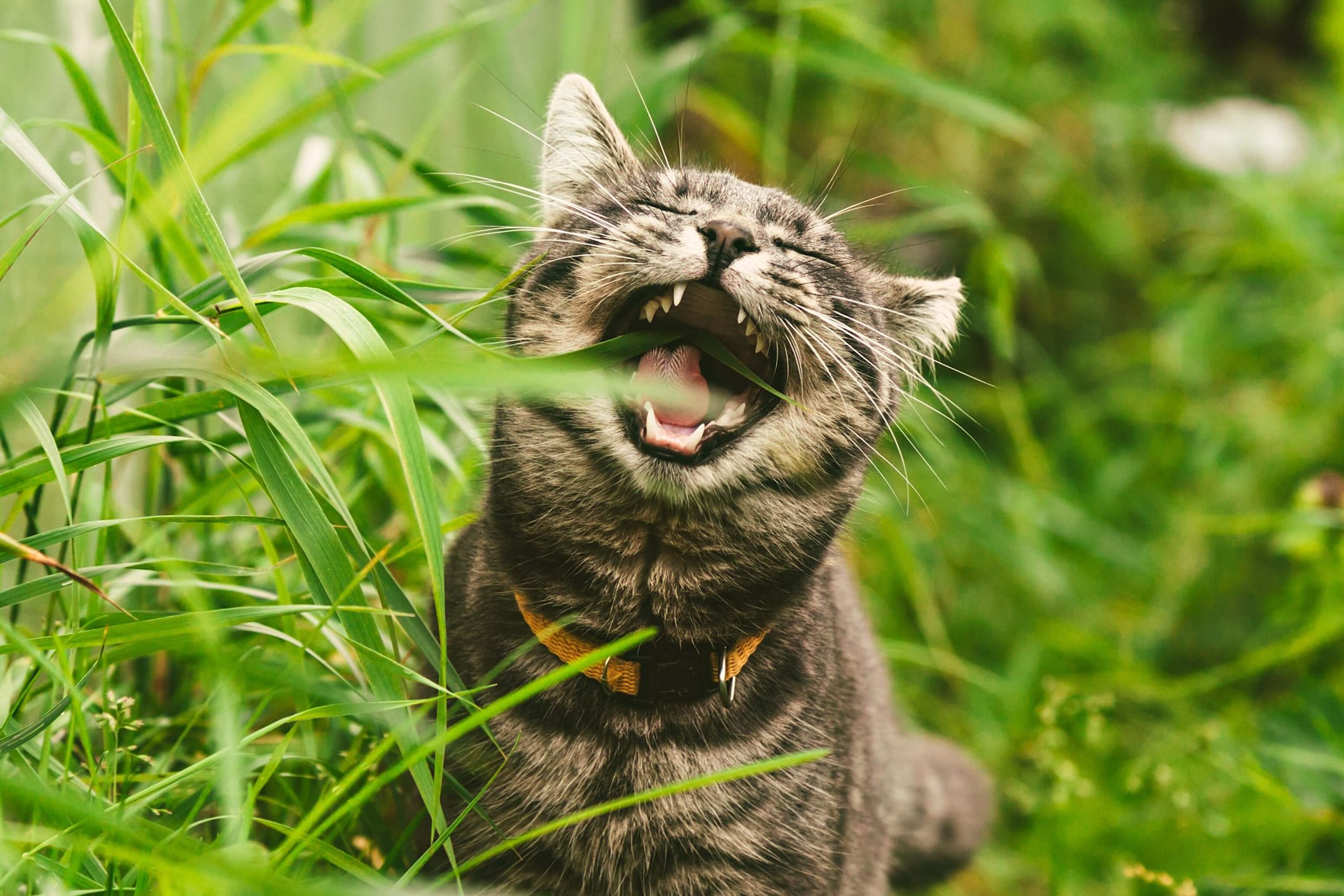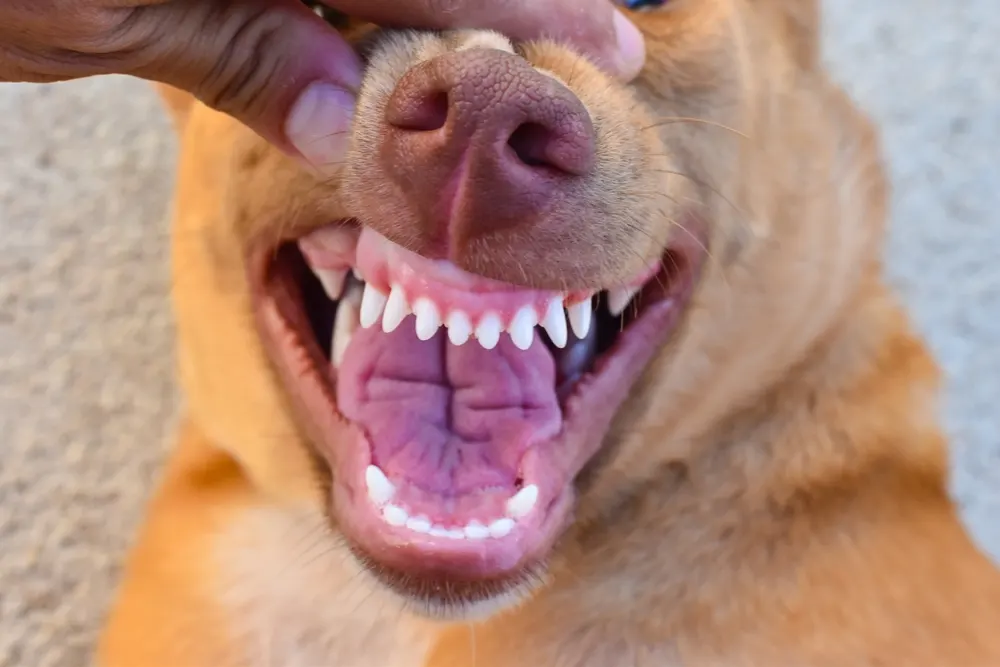
Dangerous Decorations and Festive Foods For Your Pets
November 19th 2020
Christmas is a time for goodwill to all, but make sure this also extends to your four-legged friends. It’s easy to get swept up in the occasion and feel that you want to share all the Christmas festivities with your pets, but it can endanger their health, sometimes seriously, and even innocent treats can be deadly. To avoid killing them with kindness, pet food company Vet’s Kitchen has a guide to the top dangerous festive treats for your pets.
Deck the Halls…carefully
- Those chocolate treats behind the advent calendar doors, and all the other tempting chocolate on offer, contain a stimulant called theobromine which is poisonous to dogs – dark chocolate contains the most. Theobromine mainly affects the heart, central nervous system and kidneys 4-24 hours after eating chocolate your pet could show signs of: vomiting, diarrhoea, restlessness, hyperactivity, tremors and seizures.
- Pets are fascinated by twinkling tinsel and shiny decorations, sometimes attempting to eat or play with them. If they ingest loose strands it can cause life-threatening intestinal obstructions. To be safe keep them out of pet reach.
- Poinsettias are an essential festive plant, but they can cause irritation to the mouth and stomach of animals, hyper-salivation and sometimes vomiting. Lilies, another popular choice at Christmas, are extremely toxic to cats and cause severe kidney damage.
- Salt dough ornaments. If you have children that have made salt dough ornaments for the tree, please keep them away from your pets. As little as 2-3 grams of salt per Kg of body weight can cause poisoning and dogs have died from consuming these ornaments. Symptoms of salt poisoning include reduced appetite, vomiting, diarrhoea, excessive thirst, excessive urination, weakness or lethargy, incoordination, seizures and can lead to death if untreated.
Party Pooper Christmas Foods
- They may be a delicious nibble, but within 12 hours of eating macadamia nuts dogs can experience weakness, depression, tremors, vomiting and hypothermia which can last for 12-48 hours.
Any owners who are concerned that their pet has eaten something harmful this Christmas should seek the advice of a trained vet immediately.
- The cheese board is a temptation at any Christmas drinks party, just don’t slip any crumbs of blue cheese to the owner’s dog. Roquefort and other blue cheese contain mycotoxin roquefortine, to which dogs are sensitive to. Muscle tremors, seizures, and in worst cases even death have resulted from dogs eating large quantities or very overripe blue cheese. The toxin is also found on other mouldy foods, so bin-raiding pet owners beware!
- The bad effects of overindulging in alcohol are all too well known at Christmas, but remember it is significantly more toxic to dogs and cats than humans. Alcohol can cause vomiting, diarrhoea, difficulty breathing, tremors, abnormal blood acidity, coma and in extreme cases even death.
Christmas Dinner Dangers
- Turkey and all the trimmings are the crowning glory of the Christmas table, but pets can easily choke on bones, cooked bones from the turkey carcass can splinter easily and become lodged or puncture your dog’s digestive tract. Sage & onion stuffing may seem an innocent leftover treat for your cat, but onions, garlic, leeks, shallots and chives (all Alliums) can cause toxicity, even when cooked. Dogs can also be affected if they eat large quantities.
- Rich fatty foods can be a problem for everyone at Christmas, but festive overindulgence by your dog or cat may lead to vomiting and diarrhoea. Large high fat meals can lead to pancreatitis.
- Christmas pudding is a no-no for dogs or cats due to a toxic substance in grapes and raisins which can cause kidney failure. This makes fruit cake and mince pies out of bounds too.
And when you start the post-Christmas fitness drive, be careful getting your pet to be your diet partner – the artificial sweetener xylitol, which is found in many diet foods, causes insulin release in many species leading to potentially fatal hypoglycaemia (lowered sugar levels). It can be dangerous even in small amounts to dogs and has been linked to fatal acute liver disease and blood clotting disorders.

 Shop Dog
Shop Dog
 Shop Cat
Shop Cat
 Vet Know-how
Vet Know-how Contact
Contact


